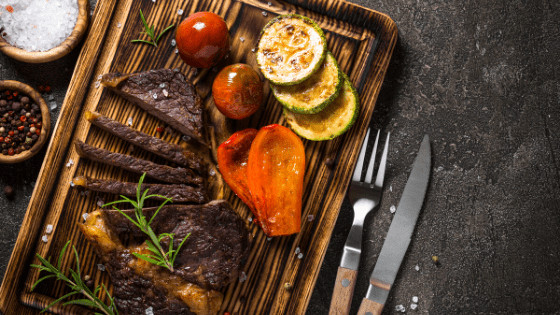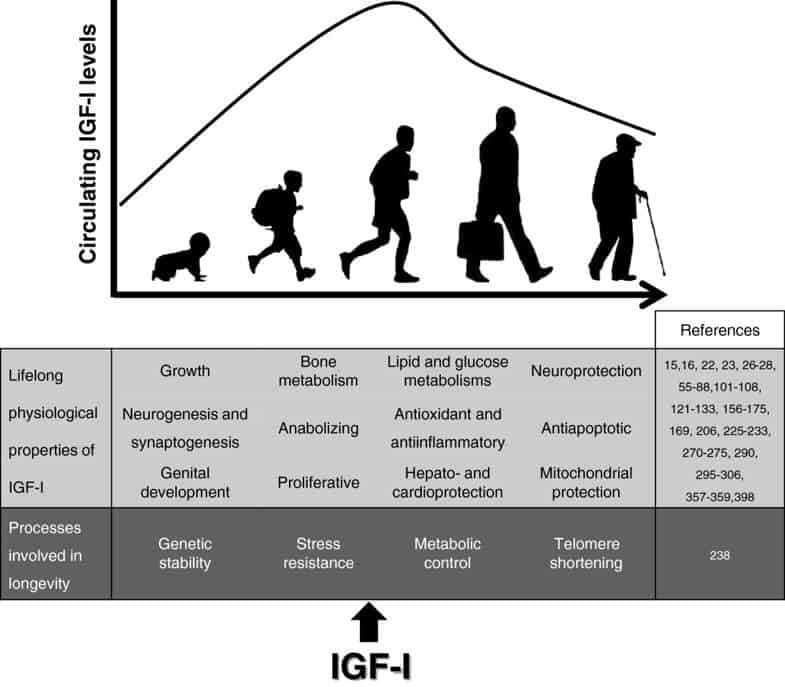
08 Nov Worried about IGF-1 and Meat Consumption?
I’m going to start a debunking series about IGF-1 and meat consumption. This being the first of many….you may have seen this argument before with vegan movement. I want to bring all of these topics into the light because I’m so sick of hearing this information from a one sided source and I’m sure you are too! So, let’s dive into IGF 1 benefits.
IGF-1 Benefits
“IGF-1 increases due to consumption of animal proteins being consumed, which raises your risk of cancer.” I’m sure you’ve heard it, let me get the face palm and eye roll out of the way as the internet tries to simplify this and make it seem scary.
IGF-1 is a hormone, a growth hormone to be more specific. It helps every cell grow (healthy cell or even a sick cell) in the body. IGF-1 is beneficial to our body, just like insulin and cortisol for example. I use those examples because these hormones are also talked negative about in the internet sphere for good reason, as too much or too little can cause issues, BUT the same goes for IGF-1. Too much or too little of IGF-1 can cause harm.
Below is an image that shows the benefits of the increasing IGF-1 that we go through as we age. IGF-1 actually helps the production of one of our major antioxidants in our body – glutathione, which protects us from oxidative stress.
Low circulating IGF-1 actually increases our risk of cardiovascular disease, lowers our longevity, and increases our risk for Alzheimer’s and dementia.

So, now that we’ve established that IGF-1 isn’t a BAD thing and that we need it for optimal health. Now you know that you can’t run off and say, “Let’s do everything we can to make sure we have low IGF-1, so we can be healthy.” It doesn’t work that way.
Our findings demonstrate that both low and high serum IGF-I levels are risk markers for increased cancer mortality in older men. Moreover, low IGF-I levels associate with increased CVD mortality.
The Journal of Endocrinology + Metabolism
Let’s address the meat + IGF-1.
IGF-1 in Meat Consumption
There ARE studies that show higher circulating IGF-1 is harmful and can promote cancers. Just like high insulin. Just like high cortisol. Just like high estrogens. BUT, we still need ALL those things for our body. Again, we have to keep these hormones in balance. I keep repeating myself because this is SO important to have drilled in your head and it’ll help you not fall for fear-mongering vegan posts.
First, I want to preface – eating a diet that’s full of just meats won’t get you to optimal health. I will always recommend that 75% of your plate should be vegetables. If our plates were designed this way, the majority of being vegetables and then some good quality protein sources from grass-fed beef, pasture raised chicken, pasture raised eggs, etc, that would be a healthy plate. The benefits of vegetables would minimize any negative effects (like an increase in IGF-1, so you can keep IGF-1 in balance), but you’ll also get the positive effects from eating a complete amino acid/nutrient dense protein source from animals.
I will be the first to tell you that the meat consumption in the Standard American Diet is insanely high and the quality of most meats is TERRIBLE. 3/4 of our plate is meat and we consume little vegetables. The Standard American also doesn’t exercise much (I’ll get to that in a bit). That’s a very cancer promoting lifestyle.
Since meat does increase IGF-1, we want to focus on the QUALITY of the meats because farm raised meats are more inflammatory versus grass-fed, pasture raised meats (or wild caught seafood) are more anti-inflammatory AND you’ll want to focus on your vegetable intake. Remember, the keyword here is BALANCE between the two.
Just because meats may raise your IGF-1 DOES NOT mean that meat doesn’t have any health benefits whatsoever. Let’s talk about the bioavailable source of iron, the B12, and so many other nutrients that are very bioavailable and nutrient dense in this source. You can eat less meat to get the same amount of amino acids compared to the amount you need from a plant source. Remember, IGF-1 with eating meat is such a small portion of what our health will be like with living a healthy lifestyle.
Whole Body Outlook
If you work with me 1:1 or you’ve just been following me for a while, you know that I’m all for looking at the whole body! While it’s nice to dive into one specific part of food or even just look at ONLY food for health, that will never bring you to optimal health. It’s a whole body approach, ya’ll!
Keeping our IGF-1 in balance is vital to our health, just like keeping insulin and cortisol in balance is vital to our wellbeing. Because psssttt, insulin/blood sugar issues can actually stimulate MORE IGF-1.
Exercise is a great example of what we can do in our lifestyle to keep IGF-1 in balance. A study done in International Journal of Endocrinology showed that low intensity aerobic exercise decreased high circulating levels of IGF-1. Even just intense walking showed to lower IGF-1.
So, in conclusion, should you run away from meat? NO, heck no. The benefits of meat when the quality is right and the amount is right is amazing for our health. We have to look at our overall lifestyle to prevent cancer because we will do things that increase IGF-1 that is healthy for us and we will do things that lower IGF-1 that is healthy for us too! 🙂
Get the best nutrition advice you need to make lifestyle changes and reach your health goals with help from a certified nutritionist and registered dietitian in Austin, Texas, and surrounding areas.


